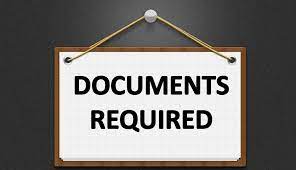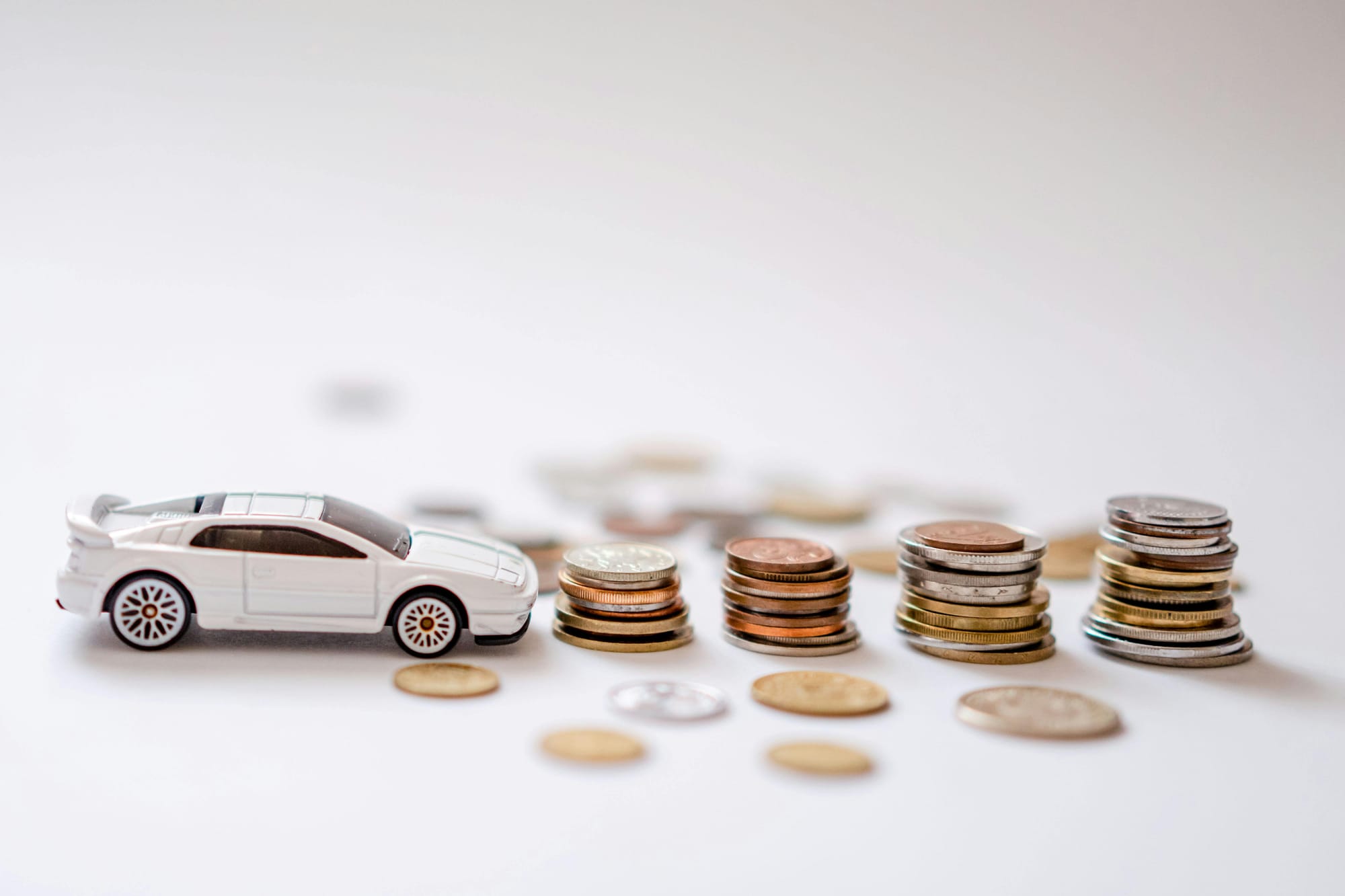Buying A Car In Kenya: Everything You Need To Know From Requirements To Purchase

Table of Contents
1.Qualifications for Purchasing a Vehicle in Kenya
- Identification Documents
- Proof of Income
- Proof of Address
- Bank Statements
- Tax Compliance Certificate
- Vehicle Insurance
- Proof of Funds
- Transfer of Ownership Forms
2.Essential Documents for Purchasing a Vehicle in Kenya
- Original Logbook (Vehicle Registration Booklet)
- Vehicle Inspection Report
- Valid Insurance Certificate
- Service History
- Original Purchase Invoice or Sales Agreement
- Valid Identification Documents
- Transfer of Ownership Forms
- Mechanical Inspection Certificate (Optional)
3.Conducting Necessary Searches on Government Databases
- Utilizing the NTSA TIMS Portal
- Checking the Collateral Registry (MPSR)
- Verifying Mileage with the KEBS Mileage Verification Portal
- Reviewing Public Notices from the Kenya Revenue Authority (KRA)
- Inquiring About Additional Documentation
4.Inspection Checklist for Purchasing a Used Vehicle in Kenya
- Service History
- Accident and Repair History
- Rust and Corrosion Inspection
- Functionality of Lights
- Engine, Transmission, and Suspension Inspection
- Tire Condition and Tread Depth
- Inspection for Fluid Leak
- Functionality of Interior Features
- Assessment of Unusual Noises or Vibrations
- Test Drive
5.Pros and Cons of Buying a Locally Used Car Vs Importing A Car
- Benefits of Buying a Locally Used Car
- Disadvantages of Buying a Locally Used Car
- Benefits of Buying an Imported Car
- Disadvantages of Buying an Imported Car
6. Ensuring a Smooth Transaction: Nine Measures for Buyers
- Verify the Seller's Identity
- Conduct a Final Inspection
- Request for Documentation
- Arrange for Transfer of Ownership
- Obtain a Sale Agreement
- Secure Payment Method
- Obtain a Receipt
- Complete Necessary Paperwork
- Arrange for Vehicle Pickup or Delivery

1.Qualifications for purchasing a vehicle in Kenya
To qualify to purchase a vehicle in Kenya, you typically need to provide the following documents:
- Identification Documents: You will need to present a valid form of identification, such as a national identity card (ID), passport, or driver's license. This serves to verify your identity and confirm that you are legally eligible to own a vehicle.
- Proof of Income: Some dealers or financial institutions may require proof of income to assess your ability to afford the vehicle and repay any financing arrangements. This could include recent payslips, bank statements, or employment contracts.
- Proof of Address: You may be asked to provide proof of your current address, which could include utility bills (e.g., water or electricity bills), a tenancy agreement, or a letter from your employer confirming your address.
- Bank Statements: If you plan to finance the vehicle through a bank loan or hire purchase agreement, you may need to provide recent bank statements to demonstrate your financial stability and creditworthiness.
- Tax Compliance Certificate: In some cases, particularly for high-value vehicles or when applying for financing, you may need to provide a tax compliance certificate from the Kenya Revenue Authority (KRA) to confirm that you are up to date with your tax obligations.
- Vehicle Insurance: Before purchasing a vehicle, you may be required to arrange insurance coverage for the vehicle. While this is not a document you provide upfront, you will need to present evidence of insurance before completing the purchase transaction.
- Proof of Funds: If you are paying for the vehicle in cash or through a bank transfer, you may need to provide evidence of the source of funds, especially for large transactions. This could include bank statements showing the origin of the funds.
- Transfer of Ownership Forms: After purchasing the vehicle, you will need to complete transfer of ownership forms issued by the relevant government authority, such as the Kenya Revenue Authority (KRA) or the National Transport and Safety Authority (NTSA). These forms are required to update the vehicle's registration details with your information as the new owner.
It's essential to check with the seller, dealer, or financial institution about their specific requirements for purchasing a vehicle, as these may vary depending on factors such as the type of vehicle, the financing arrangement, and any applicable regulations or policies. Additionally, ensure that all documentation provided is authentic and legally valid to avoid any complications during the purchase process.

2.Essential Documents for Purchasing a Vehicle in Kenya
Before purchasing a car in Kenya, it's essential to obtain certain documents to ensure a smooth and legally compliant transaction. Here are the key documents you should ask for:
- Original Logbook (Vehicle Registration Booklet): This document contains detailed information about the vehicle, including its registration details, chassis number, engine number, and previous ownership history. It serves as proof of ownership and is crucial for transferring ownership to the buyer.
- Vehicle Inspection Report: Request a copy of the vehicle inspection report to verify the condition of the car and ensure it meets the required safety and roadworthiness standards. This report may include details of any previous accidents or mechanical issues.
- Valid Insurance Certificate: Ask for a copy of the current insurance certificate to confirm that the vehicle is insured against risks such as accidents, theft, and damage. Ensure that the insurance coverage is valid and up to date.
- Service History: Request the service history of the vehicle to understand its maintenance record and identify any recurring issues or repairs. A well-maintained car with regular servicing is likely to be more reliable and have fewer mechanical problems.
- Original Purchase Invoice or Sales Agreement: Obtain a copy of the original purchase invoice or sales agreement to document the transaction between the seller and the buyer. This document should include details such as the purchase price, payment terms, and any warranties or guarantees provided by the seller.
- Valid Identification Documents: Both the buyer and the seller should provide valid identification documents, such as national identity cards or passports, to verify their identities and facilitate the transfer of ownership
- Transfer of Ownership Forms: Ensure that the seller provides the necessary transfer of ownership forms issued by the relevant government authority, such as the Kenya Revenue Authority (KRA) or the National Transport and Safety Authority (NTSA). These forms are required
to transfer the vehicle's registration to the new owner's name. - Mechanical Inspection Certificate (Optional): Consider requesting a mechanical inspection certificate from a qualified mechanic or inspection center to assess the vehicle's mechanical condition in detail. This certificate can provide additional peace of mind regarding the car's overall condition.
By ensuring that you have these essential documents before purchasing a car in Kenya, you can protect yourself from potential risks and ensure a transparent and legally compliant transaction. Always thoroughly review the documents and consider seeking professional advice if needed to make an informed purchasing decision.

3.Conducting Necessary Searches on Government Databases
Before purchasing a car in Kenya, it's crucial to conduct several searches on government databases to ensure that the vehicle's ownership, history, and compliance status are in order. Here are the essential searches you should perform:
Perform a search on the NTSA TIMS portal using the vehicle's Registration Number to ascertain:
- The registered owner's details
- The VIN number (chassis number)
- The engine number
- Vehicle specifications such as model, type (e.g., station wagon, saloon, lorry), color, and engine capacity
- The existence of any co-owners, such as banks, micro-finance institutions, or motor vehicle dealers.
In some cases, the logbook may show another co-owner, such as:
- A bank, financial institution, or motor dealer, indicating a loan or debt secured by the vehicle. In such instances, request the owner/seller to clear the charge on the logbook by obtaining written confirmation from the bank or institution stating that the loan or debt has been settled. Upon payment of discharge fees, surrendering the original logbook with the co-owners’ names, and submission to NTSA, a new logbook will be issued in the seller’s name only.
- A deceased person. If this is the case, request the seller to provide confirmed Letters of Administration or Grant of Probate issued by the courts to NTSA, along with the original logbook. NTSA will then advise on the necessary steps, facilitating the transfer of the vehicle to the administrator/executor of the deceased’s estate confirmed by the court.
It is crucial not to purchase a vehicle with a logbook showing another owner, as it may lead to repossession by the bank or financial institution or legal challenges by the dependents of the deceased.
- Conduct a search on the Collateral Registry (MPSR) under the Business Registration Service on the eCitizen Portal. This registry lists movable assets used as security for loans, including motor vehicles.
- Perform a search on the Kenya Bureau of Standards’ (KEBS) mileage verification portal using the vehicle’s Chassis Number (VIN Number) to check for odometer tampering. Alternatively, send a text message to 20023 with the format CH# Chassis Number.
- Check for any public notices published by the Kenya Revenue Authority (KRA) regarding vehicle verification for import duty payment. Ensure the prospective vehicle’s registration number is not listed in any such notices.
- Inquire with the seller about the availability of documents such as QISJ (issued by KEBS), Import Declaration Form (IDF), F147, Payment Slip, Export Certificate, Duty Entry Form, CFS invoice, Receipt and Release order, and Bill of Lading, especially if they are the vehicle’s first owner or if the seller is a motor vehicle dealership.

4.Inspection Checklist for Purchasing a Used Vehicle in Kenya
It is essential that you inspect the vehicle with a qualified and trusted mechanic. Here is a checklist that you can use:
- Can you provide the service history of the vehicle?
Understanding the vehicle's service history helps you assess how well it has been maintained over time. Regular servicing indicates that the owner has taken care of the vehicle and addressed any issues promptly.
- Has the vehicle ever been involved in a major accident or undergone significant repairs?
Knowing the vehicle's accident history is crucial as it can affect its structural integrity and long-term reliability. Major repairs may also indicate underlying issues that could impact the vehicle's performance.
- Are there any visible signs of rust or corrosion on the chassis or body of the vehicle?
Rust and corrosion can weaken the vehicle's structure and compromise its safety. It's essential to inspect the chassis and body for any signs of rust, especially in areas prone to corrosion, such as the undercarriage and wheel wells.
- Are all the lights, including headlights, brake lights, and turn signals, in working condition?
Properly functioning lights are essential for safety, visibility, and compliance with road regulations. Checking all lights ensures that they are operational and not in need of replacement or repair.
- Have you experienced any issues with the engine, transmission, or suspension?
Asking about past issues with the engine, transmission, and suspension can reveal
potential mechanical problems that may require attention. It's essential to address
these issues before purchasing the vehicle to avoid costly repairs later on.
- Are the tires in good condition, and do they have sufficient tread depth?
Tires play a critical role in vehicle safety and performance. Inspecting the tires for wear and tear, as well as checking the tread depth, helps determine if they need replacement soon and assesses the overall condition of the vehicle.
- Are there any fluid leaks, such as oil, coolant, or brake fluid, underneath the vehicle?
Fluid leaks can indicate underlying mechanical issues or poor maintenance. Checking for leaks helps identify potential problems with the engine, cooling system, or braking system that may require immediate attention.
- Do all the interior features, such as the air conditioning, radio, and power windows, function properly?
Ensuring that interior features are in working condition enhances comfort and
convenience while driving. Testing these features helps identify any electrical or
mechanical issues that need to be addressed.
- Have you noticed any unusual noises or vibrations while driving the vehicle?
Unusual noises or vibrations while driving can be indicative of mechanical problems, such as worn-out components or misaligned parts. Identifying these issues early on can prevent further damage and costly repairs.
- Can I take the vehicle for a test drive to assess its performance and handling?
Test driving the vehicle allows you to experience its performance firsthand and evaluate its handling, acceleration, braking, and overall drivability. It's an essential step in determining if the vehicle meets your expectations and requirements.

5.Pros and Cons of Buying a Locally Used Car Vs Importing A Car
Buying a locally used car and an imported car in Kenya each come with their own set of benefits and disadvantages. Let's compare and contrast them:
Benefits of Buying a Locally Used Car:
- Cost-Effective: Locally used cars often come at a lower price compared to imported cars due to factors such as depreciation, lower import taxes, and reduced shipping costs.
- Familiarity with Market: Buyers have access to a wide range of locally used cars in the market, allowing them to choose from various makes, models, and conditions based on their preferences and budget.
- Ease of Inspection: Buyers can easily inspect locally used cars in person, assess their condition, and test drive them before making a purchase decision, reducing the risk of buying a vehicle with undisclosed issues.
- Lower Maintenance Costs: Locally used cars may have a service history available, making it easier for buyers to anticipate maintenance and repair costs. Additionally, spare parts for locally used cars are often more readily available and affordable compared to imported cars.
Disadvantages of Buying a Locally Used Car:
- Limited Options: The selection of locally used cars may be limited compared to imported cars, especially in terms of newer models, specific features, or luxury brands.
- Higher Risk of Wear and Tear: Locally used cars may have higher mileage and wear and tear compared to imported cars, potentially requiring more frequent maintenance and repairs.
- Limited Warranty Coverage: Locally used cars may not come with warranty coverage or may have limited warranty options compared to imported cars, leaving buyers responsible for any repair costs after purchase.
- Depreciation: Locally used cars may depreciate faster in value compared to imported cars, which could affect their resale value in the future.
Benefits of Buying an Imported Car:
Wide Range of Options: Imported cars offer buyers access to a broader selection of vehicles, including newer models, specific makes, and luxury brands that may not be available locally.
- Higher Quality and Features: Imported cars often come with advanced features, better build quality, and higher safety standards compared to locally used cars, providing a superior driving experience.
- Prestige and Exclusivity: Owning an imported car can confer prestige and exclusivity, especially if it is a luxury or high-performance vehicle that is not commonly seen on Kenyan roads.
- Better Resale Value: Imported cars generally retain their value better over time compared to locally used cars, making them a more attractive option for buyers looking for long-term investment potential.
Disadvantages of Buying an Imported Car:
- Higher Cost: Imported cars typically come with a higher price tag due to import duties, taxes, shipping costs, and other associated fees, making them less affordable for some buyers.
- Limited Availability: Imported cars may be subject to limited availability and longer lead times, especially for custom orders or rare models, which could delay the purchase process.
- Higher Maintenance Costs: Imported cars may require specialized maintenance and repair services, as well as imported spare parts, which can be more expensive and harder to source compared to locally used cars.
- Lack of Warranty Coverage: Imported cars may have limited or no warranty coverage in Kenya, leaving buyers vulnerable to unexpected repair costs and maintenance expenses.
In summary, the choice between buying a locally used car and an imported car in Kenya depends on factors such as budget, preferences, availability, and long-term goals. While locally used cars offer cost- effective options and easier accessibility, imported cars provide access to a wider range of options and higher quality features, albeit at a higher cost. Ultimately, buyers should carefully weigh the benefits and disadvantages of each option before making a decision that aligns with their needs and priorities.

6.Ensuring a Smooth Transaction: Nine Measures for Buyers
Here are nine measures a person can take on the day of making full payment for a second-hand vehicle to ensure a smooth transaction and protect all parties involved:
- Verify the Seller's Identity: Before making the payment, ensure that you are dealing with the actual owner of the vehicle. Request to see the seller's identification documents, such as a national ID or passport, and compare the details with the vehicle's registration documents.
- Conduct a Final Inspection: Before finalizing the payment, thoroughly inspect the vehicle one last time to ensure that it meets your expectations and is in the agreed-upon condition. Check for any new damages or issues that may have arisen since the last inspection.
- Request for Documentation: Ask the seller to provide all relevant documentation related to the vehicle, including the original logbook (title), service history, insurance documents, and any receipts for repairs or maintenance. Verify that the information matches the details provided during the negotiation process.
- Arrange for Transfer of Ownership: Once payment has been made, ensure that the seller initiates the transfer of ownership process immediately. Provide all necessary documents and information required for the transfer to be completed smoothly and legally.
- Obtain a Sale Agreement: Draft a sale agreement outlining the terms and conditions of the transaction, including the sale price, payment method, condition of the vehicle, and any warranties or guarantees provided. Both parties should sign the agreement to formalize the sale.
- Secure Payment Method: Use a secure payment method, such as a bank transfer or cashier's check, to make the payment. Avoid making cash payments as they can be risky and may not provide a record of the transaction.
- Obtain a Receipt: Once the payment has been made, request a receipt from the seller as proof of payment. The receipt should include details such as the sale price, date of payment, and signatures of both parties.
- Complete Necessary Paperwork: Fill out any required paperwork for the transfer of ownership, including the application for transfer of motor vehicle ownership. Ensure that all details are accurately filled in and signed by both parties to avoid delays in the transfer process.
- Arrange for Vehicle Pickup or Delivery: Coordinate with the seller to arrange for the pickup or delivery of the vehicle. Ensure that the vehicle is handed over in the agreed-upon condition and that all keys, documents, and accessories are provided.
By following these measures, you can protect yourself, the seller, and the vehicle during the transaction process and ensure a smooth and successful sale.
YOU CAN NOW DRIVE OFF INTO THE SUNSET....

Looking for swift financial solutions? #KifedhaGotYou .
Contact us through our contact form, call us on +254791573231 or visit one of our branches to explore financial opportunities.




Comments ()